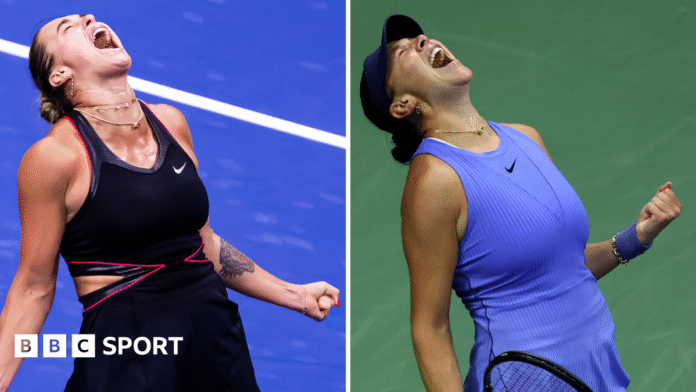A compelling character on and off the court, Sabalenka wears her heart on her sleeve.
While endearing to tennis fans, it has proved costly on the big stages.
All three Grand Slams this year have ended in devastating defeats to American opponents. Madison Keys out-hit Sabalenka in Australia, Coco Gauff outlasted her in Paris before Anisimova stepped up another gear at Wimbledon.
Sabalenka’s passion and desperation to win has often erupted into frustration and fury, while her eagerness to overpower her opponents can cause her to become error-strewn.
Sometimes that emotion has spilled over into her words. She had to apologise to Gauff after saying the American had won the French Open final “not because she played incredible [but] because I made all those mistakes”.
Sabalenka says she will not make that mistake again.
“I learned that lesson, and I will never behave that way. It’s not me,” she said on Thursday.
“I was super emotional. I let emotions take control over me, and it’s not who I am.”
Learning to control that emotion is where Sabalenka must improve if she is to triumph again in New York – particularly when facing a partisan home crowd.
After her semi-final defeat at SW19, Sabalenka said Anisimova was “more brave” with her shots, and she needs to remind herself that she is the one at the top of the rankings in the key moments.
Sabalenka remains the outstanding player on the women’s tour. She has won 55 matches this year, claimed three titles and has a 3,292-point lead at the top of the rankings.
She is the first woman to reach the both the Australian and US Opens finals for three consecutive years since Martina Hingis in 1999, as well as the first to reach three major singles finals in a calendar year since Serena Williams in 2016.
But, for all those impressive statistics, ending 2025 without a Grand Slam would potentially be disastrous to a serial winner like Sabalenka.

